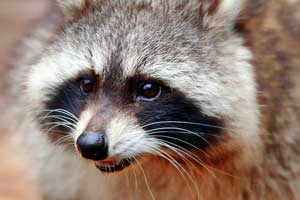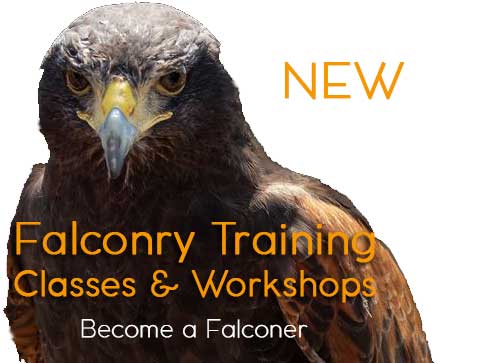Are Raccoons Aggressive Toward Humans?
 Despite appearing to be cute and cuddly creatures, raccoons are actually one of nature’s biggest and most destructive nuisances, especially to humans. Although urban raccoons are accustomed to human presences and generally don’t pose a threat, there are certain circumstances in which they can be dangerous to people.
Despite appearing to be cute and cuddly creatures, raccoons are actually one of nature’s biggest and most destructive nuisances, especially to humans. Although urban raccoons are accustomed to human presences and generally don’t pose a threat, there are certain circumstances in which they can be dangerous to people.
Like humans or any other animal species, raccoons usually get aggressive or defensive when they feel threatened or scared. They have a natural instinct to protect themselves and their kits (children) against what they perceive to be potential threats.
With that in mind, if you come into contact with a raccoon or a nest of raccoons has taken up residence in your home, it’s best to call raccoon control and prevention services to deal with the matter.
Hawkeye’s Control, Prevention, and Removal of Aggressive Raccoons
Raccoons are naturally curious, but invasive creatures. As scavengers and creatures of habit, they tend to go where they can find easily accessible food sources and warm and cozy living spaces for their nests. Once raccoons have nested in your residential or commercial property, getting rid of them can be a challenge.
Hawkeye Bird and Animal Control provides extensive raccoon control, prevention, and removal services in Toronto and the GTA. We use safe, humane, and effective industry-recognized practices to ensure that all raccoons are removed from your property with minimal downtime and property damage.
How Dangerous are Raccoons?
Raccoons can certainly coexist with humans in outdoor urban spaces. But when they enter your home or get a little too close for comfort, that’s when the real trouble begins.
Raccoon infestations are dangerous for a number of reasons. These furry urban creatures often carry a cornucopia of diseases including rabies, roundworms, and leptospirosis. These diseases can be transmitted to humans through various means including contact with their feces and urine; roundworm eggs can even become airborne and ingested by humans unknowingly. Raccoons are considered a rabies vector species, meaning raccoons are the most common carrier of the deadly disease which can easily be transferred to humans and other animals including household pets.
Furthermore, raccoons can get physically aggressive around perceived threats to their own personal safety or the safety of their kits. Bottom line: never try to get into a physical altercation with a raccoon. They will win pretty much every time.
Here are a few other factors to be aware of when dealing with raccoons in your area or property:
- They have sharp claws and teeth. And, they’re not afraid to use them. If humans dare to get too close to raccoon nests, the mother will almost immediately go into attack mode. In fact, any time you spot a raccoon—whether it’s rummaging through your garbage or running across your yard—it’s probably best to just steer clear of them altogether and maintain a safe distance.
- They’re wild and unpredictable. Raccoons are wild animals that carry diseases, which means their behaviour can be completely unpredictable at times. At first glance, there’s no way of knowing whether or not they’re sick, so it’s better not to take the risk of getting too close.
- There’s a risk of disease transmission. As mentioned, raccoons are a rabies vector species, which means that they’re likely to have some form of this disease and can transmit it to humans and other animals.
When Will a Raccoon Attack You?
Due to urban modernization, raccoons have become accustomed to living in close proximity to humans. Generally, raccoons are more likely to run away from creatures such as humans that are bigger than them. But there are several circumstances in which raccoons might feel compelled to attack humans, usually in self-defence or to protect their own.
Raccoons will generally attack you or fight back if:
- You try to corner them
- They have rabies
- They’re protecting their babies
Understandably, your first instinct upon discovering unwanted pests or wildlife in your residential or commercial property is most likely to try to trap and remove them immediately, but this is unsafe to do without consulting or hiring a professional. When it comes to raccoon control and removal you do not want to get caught in an altercation with a raccoon, especially a sick or threatened animal. When raccoons feel threatened or are sick, they very quickly go into self-defence mode and that typically means a lot of biting and scratching.
Rabies-infested raccoons show specific signs and symptoms that venture far beyond the typical distemper exhibited by raccoons. The combination of severe aggression and disorientation means that raccoons with rabies are far less likely to be timid or afraid of humans that they perceive to be threatening. And that means they’re more likely to attack and act in an unpredictable manner.
What to Do if a Raccoon Attacks You
Staying as far away as possible during a raccoon attack is imperative. Try to use whatever long-form objects are available to you to keep the raccoon from scratching, biting, or clinging to you. Broomsticks, large branches, trash cans, or even pieces of furniture like chairs and step stools are ideal. Avoid throwing blunt objects at the raccoon as this will only further aggravate it. Just use the objects to keep the raccoon as far away as possible while you make your escape.
Don’t corner the raccoon, as this will just aggravate it more. Getting to a safe distance from a raccoon should be your primary objective to avoid disease transmission and injury.
Steps to Take if a Raccoon Bites You
If you’re attacked by a raccoon, then your first course of action should be to seek out medical treatment. In Ontario, this consists of local treatment of the wound and administering post-exposure prophylaxis with Rablg (rabies immune globin) along with four to five doses of HDCV or PCECV.
If the raccoon has been captured, they’ll most likely also undergo rabies testing and treatment.
It is important to know that if you do contract rabies from a raccoon, the virus is nearly 100% fatal. All efforts must be made to avoid direct contact with these animals as rabies is no joke. To learn more about rabies – please see these rabies updates.
Hawkeye’s Removal of Aggressive Raccoons Services
In the event that you have a raccoon infestation on your property, don’t try to take care of it yourself. Call the raccoon control, removal, and prevention experts at Hawkeye Bird and Animal Control to do it for you. Our experienced and fully trained technicians have the right skills and equipment to guarantee that all raccoons and other pests or wildlife are safely and effectively removed from your property. Contact us today to learn more or book our services.
Why Hawkeye?
We GUARANTEE results. We offer PERMANENT solutions above and beyond what other companies can offer. Hawkeye is the ONLY pest bird and animal/wildlife control company in Canada designated "Certified Wildlife Control Professional" AND holding the following licenses:
- Trapping of Fur Bearing Animals Permit: In contrast to all other companies, we can euthanize the bird or fur-bearing animal, thus guaranteeing it will not return.
- Falconry Permit: We use Birds of Prey (hawks, owls, falcons, eagles) to scare, chase, or remove in a natural and humane way.
- Pest ControlLicense: We can employ chemical solutions to certain problems. These methods include natural pesticides.
We are ready to serve you at several locations in Canada and the U.S, - contact us for removal of aggressive raccoons.
Related Articles: https://www.hawkeye.ca/blog/raccoon-infestation-in-apartments














